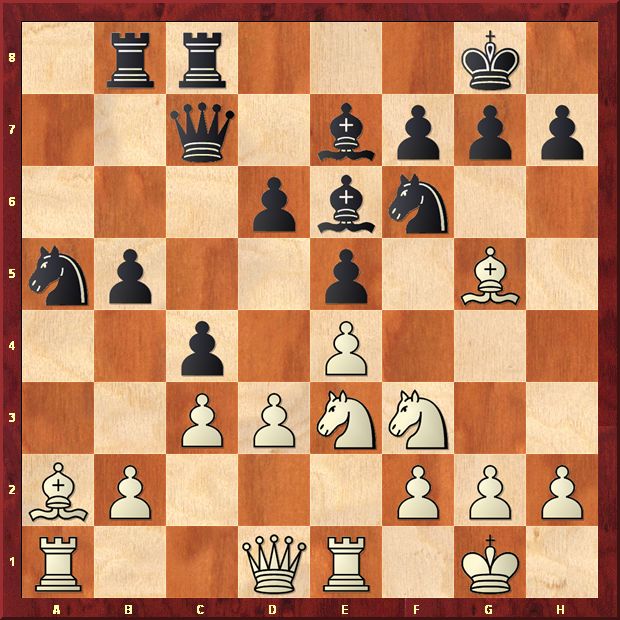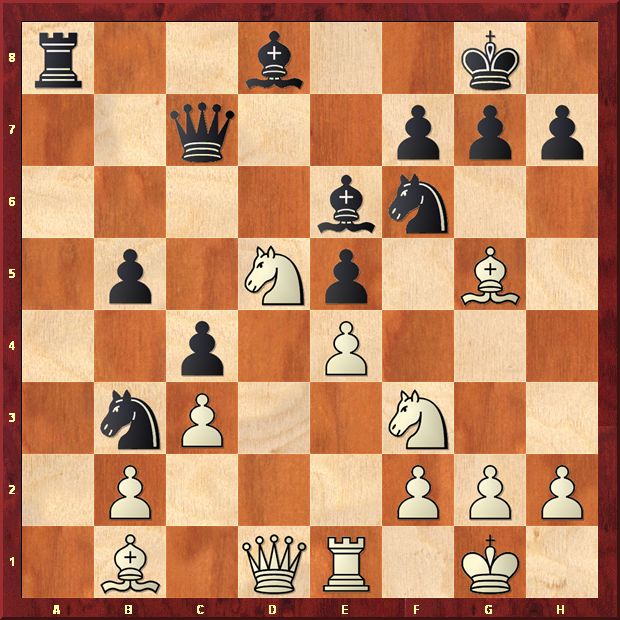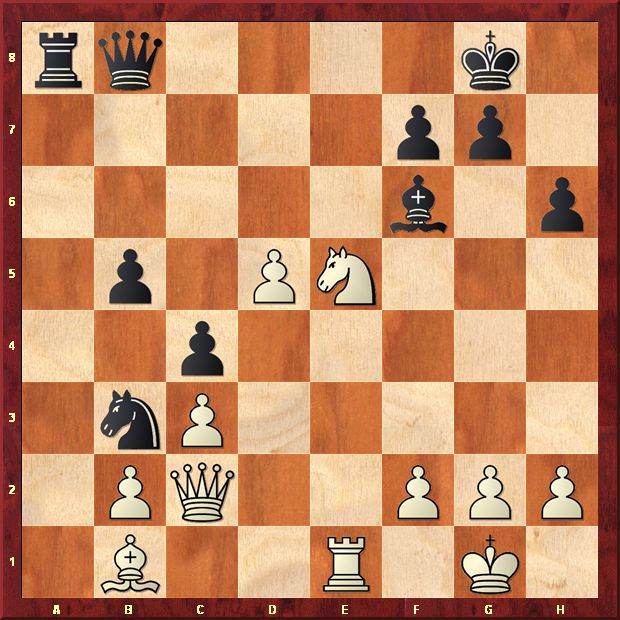Lubomir Kavalek
Huffington Post, October 4, 2010Ukraine Wins Chess Olympiad
To win gold medals at any chess olympiad, you need exceptional performances of at least two players who know how to take risks and collect points. But you also need a few others who can steady the team -- solid players hard to defeat. If that is not enough, you need some luck. The team of Ukraine had it all at the 39th Chess Olympiad in Khanty-Mansiysk, Russia, that finished Sunday.
Led by the amazing GM Vasyl Ivanchuk, Ukraine clinched the gold undefeated, winning eight matches, tying three and collecting 19 points. Russia's top team finished with the silver medal with 18 points. Israel tied for third place with Hungary with 17 points, but won the bronze on a better tiebreak.

Ivanchuk receiving the gold medal, Russian team on the left
In the Women's olympiad, Russia 1, led by the Kosintseva sisters, Tatiana and Nadezhda, and by the women's world champion Alexandra Kosteniuk, grabbed first place, winning all 11 matches, collecting 22 points. China sneaked into second place with 18 points. The once powerful team of Georgia won the bronze medal with a better tiebreak over several teams, including the U.S. team.

Russian golden women, China on the left
We can speculate why the all-mighty Russian team did not win. A loss to Hungary didn't help, but an all-out effort by Russia's GM Peter Svidler, who lost against Spain in the last round, allowed the Ukrainian team to tie their last match against Israel 2-2 and clinch the gold. In the end the dreaded tiebreak worked out well for Israel.
Ukraine had two players among the top 10 performers. Ivanchuk's 8-2 score was the best on the first board, earning him 2,890 performance points. It was eclipsed only by 5 points by the Israeli second board, GM Emil Sutovsky. GM Sergei Karjakin, an Ukrainian deserter who believed that his career can advance better in Moscow, was the top scorer for Russia's fourth board.
Russia didn't win despite a huge monetary bonus promised to each member for the first place. When was the last time they won? Those interested in the answer can visit
Olimpbase, an incredible, monumental web site, covering all olympiads to date and various team events.
Ukraine had two steady players: the former world champion GM Ruslan Ponomairov, with 5-4, and GM Pavel Eljanov, with 7-3. The biggest surprise was the performance of GM Zahar Efimenko, 25, who chipped in with a 8,5-2,5 score. He secured the most important victories in long rook endgames. We present his win against Bosnian IM Dalibor Stojanovic, a Spanish encounter with an explosive middlegame attack.
Efimenko - Stojanovic
1.e4 e5 2.Nf3 Nc6 3.Bb5 a6 4.Ba4 Nf6 5.d3 (Avoiding the Open Spanish 5.0-0 Nxe4 Several strong GMs such as Magnus Carlsen and Peter Svidler did not hesitate to try it, often reaching positions from the Anti-Marshall lines. Interestingly, in the last round, when facing the Open Spanish expert Victor Mikhalevsky, Efimenko switched from the Spanish to the Italian game.) 5...b5 6.Bb3 Be7 7.a4 Rb8 8.0-0 d6 9.c3 0-0 10.Nbd2 Na5 (Carlsen faced 10... b4 against Michael Adams and 10... Nd7 against Laurant Fressinet, winning both games.) 11.Ba2 c5 12.Re1 Qc7 13.Nf1 c4 (13... b4 is another way to seek counterplay on the queenside.) 14.axb5 axb5 15.Bg5 Be6 16.Ne3 (It is all about central squares. White seems to have them under control.) 16... Rfc8 (After 16...cxd3 17.Bxe6 fxe6 18.b4 Nc4 19.Qxd3 white's position is more comfortable.)

17.d4! Bd8?! (Wasting time. After 17... Nxe4? 18.Bxe7 Qxe7 19.Bb1 white hits both black horses and wins. But 17...b4!? gives black decent fighting chances, for example 18.dxe5 dxe5 19.Nd5! Bxd5 20.exd5 e4 21.Bxf6 Bxf6 22.Rxe4 bxc3 23.bxc3 Bxc3 24.Rc1 Bb2 25.Rc2 Qd6 [After 25... c3? 26.d6 Qc5 27.Ne5! white has too many threats.] 26.Bxc4 Nxc4 27.Rexc4 Rxc4 28.Rxc4 Bf6 white is a pawn up but winning the game would not be easy.) 18.Bb1 (White could have tried 18.dxe5 dxe5 19.Nd5, for example 19...Qb7 20.Nxf6+ Bxf6 21.Bxf6 gxf6 22.Nh4 with better chances.) 18...Nb3 19.Ra6 (A pesky rook black needs to exchange.) 19... Ra8 20.Rxa8 Rxa8 21.dxe5 (The immediate 21.Nd5!? was also possible, for example 21... Nxd5 22.exd5 Bg4 [22... Bxd5 23.dxe5 Qc6 24.exd6 wins] 23.Bxd8 Qxd8 [23... Rxd8 24.Bxh7+] 24.dxe5 dxe5 25.Qc2 g6 26.Nxe5 Bf5 27.Qe2 Bxb1 28.Nc6 and white is better.) 21...dxe5 22.Nd5! (With this strong knight leap, the position explodes and black can't handle it.)

22...Qb8? (Blundering a pawn, but life is already difficult for black. For example,
A. 22...Qb7 perhaps still the best 23.Nxe5 Nxd5 24.exd5 Bxd5 [On 24... Qxd5 25.Be4! Qxe5 26.Bxd8 wins.] 25.Qh5 and now after 25... h6? 26.Nxf7 Bxg5 27.Nd8! Rxd8 28.Re8+ Rxe8 29.Qxe8 mates; and after 25...g6 26.Qh4 Bxg5 27.Qxg5 Re8 28.Re3 black's kingside is weakened and white has a slight edge. Black can't be aggressive, for example 28... Qa8 29.h4 Qa1? 30.Nxg6! Qxb1+ 31.Kh2 Rxe3 32.Nf4+ Kf8 33.fxe3 white still has a ferocious attack with his two pieces and wins the piece back since 33... Be4? leads to 34.Qd8+ Kg7 35.Nh5+ Kg6 36.Qg5 mate.
B. 22... Nxd5 23.exd5 Bg4 24.d6! Qc8 25.Qd5 Bxf3 26.gxf3 Bxg5 27.d7 Qf8 28.Rxe5 Bf6 29.Qxa8! wins;
C. 22...Bxd5 23.exd5 Nd7 24.d6 Qc5 25.Bxd8 Rxd8 26.Bxh7+! Kxh7 27.Ng5+ Kg8 [or 27...Kg6 28.Ne4 Qc8 29.Qg4+ Kh7 30.Qh5+ Kg8 31.Ng5 wins.] 28.Qh5 Nf6 29.Qxf7+ Kh8 30.Re4! wins.)
23.Nxe5! Bxd5? (Although this exchange speeds up the collapse, black's position is beyond repairs anyway. After 23...Qxe5 24.Bf4 Bg4! [24... Qh5 25.Nxf6+ wins.] 25.Bxe5 Bxd1 26.Rxd1 white is a healthy pawn up, for example 26... Ra1 27.Ne3 Nd2 28.Rxd2 Rxb1+ 29.Nd1 Be7 30.Bxf6 Bxf6 31.Kf1 and white should win.) 24.exd5 h6 25.Bxf6 Bxf6 26.Qc2!

(A final touch. Black has no defense against the invasion of the white queen, for example 26... g6? 27.Nxf7! Qf8 28.Qxg6+ Qg7 29.Nxh6+ wins; or 26... Bxe5 27.Qh7+ Kf8 28.d6! f6 [28...Qxd6 29.Qh8+ wins.] 29.Bg6! Qxd6 30.Qh8+ Ke7 31.Qxa8 wins.) Black resigned.
Note that in the replay windows below you can click on the notation to follow the game.
Images from the olympiad site
No comments:
Post a Comment